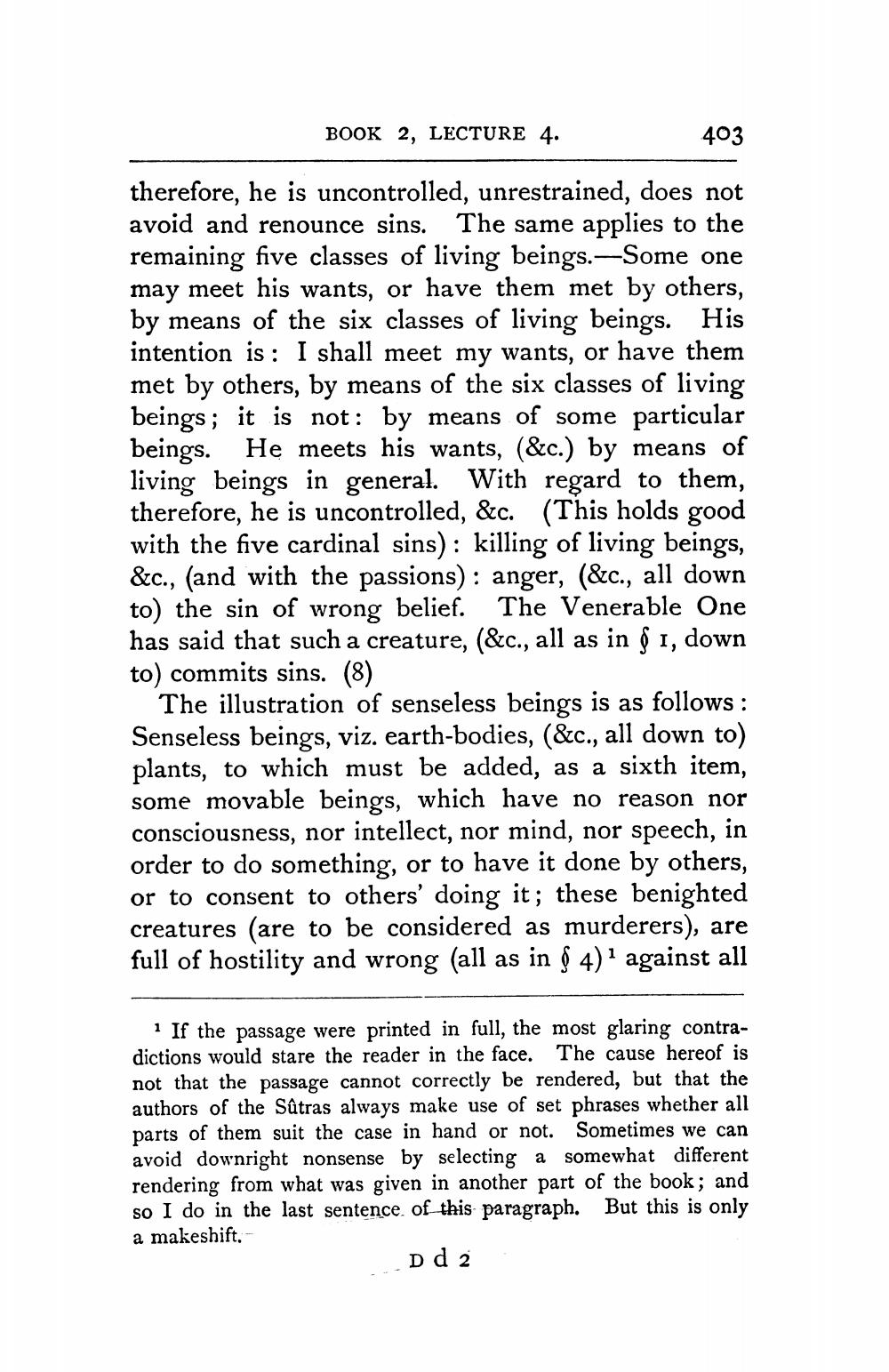________________
BOOK 2, LECTURE 4.
403
therefore, he is uncontrolled, unrestrained, does not avoid and renounce sins. The same applies to the remaining five classes of living beings. Some one may meet his wants, or have them met by others, by means of the six classes of living beings. His intention is : I shall meet my wants, or have them met by others, by means of the six classes of living beings; it is not: by means of some particular beings. He meets his wants, (&c.) by means of living beings in general. With regard to them, therefore, he is uncontrolled, &c. (This holds good with the five cardinal sins): killing of living beings, &c., (and with the passions): anger, (&c., all down to) the sin of wrong belief. The Venerable One has said that such a creature, (&c., all as in § 1, down to) commits sins. (8)
The illustration of senseless beings is as follows: Senseless beings, viz. earth-bodies, (&c., all down to) plants, to which must be added, as a sixth item, some movable beings, which have no reason nor consciousness, nor intellect, nor mind, nor speech, in order to do something, or to have it done by others, or to consent to others' doing it; these benighted creatures (are to be considered as murderers), are full of hostility and wrong (all as in § 4) · against all
1 If the passage were printed in full, the most glaring contradictions would stare the reader in the face. The cause hereof is not that the passage cannot correctly be rendered, but that the authors of the Sûtras always make use of set phrases whether all parts of them suit the case in hand or not. Sometimes we can
wnright nonsense by selecting a somewhat different rendering from what was given in another part of the book; and so I do in the last sentence of this paragraph. But this is only a makeshift. -
od 2




